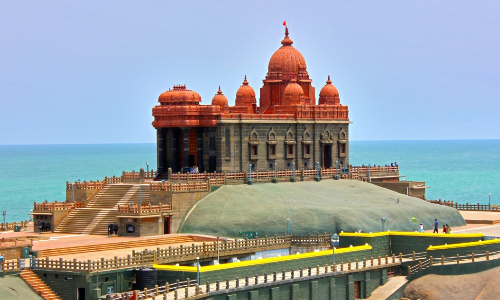In the annual series by finews.asia, selected fund managers report from their hometown in the summer. This time, the journey goes to Chennai.
By Murali Yerram, Portfolio Manager at Franklin Templeton
Chennai is the capital of the state of Tamil Nadu. The historic city is located on the east coast of India and is an important center for music, art, and culture. In July it is usually 35 degrees during the day with a tropical climate, so at night the temperature does not fall below 26 degrees.
It has great beaches, like Marina Beach right in Chennai. With 13 kilometers, it is one of the longest in the world and up to 400 meters wide. Many Chennai residents stroll along the beach, especially in the evening and on weekends. With 12 million inhabitants, Chennai is the fifth largest city in India.
High-Skilled Employment Base
In addition to art and culture, the technology industry is also thriving in Chennai. The city has one of the largest IT parks in Asia. IT plays an important role. NVIDIA and Micron are building technical competence centers in India that will employ up to 10,000 people. These investments from industry leaders are significant as they expand the high-skilled employment base beyond India's traditional strength in global centers of excellence and technology solutions consulting.

Murali Yerram, Franklin Templeton (Image: LI)
For example, Flipkart, valued at $36 billion benefiting from new investment from Google, leads the e-commerce market in India, serving hundreds of millions of consumers in smaller cities and towns. The company already makes up about 48% of the Indian e-commerce market.
With a registered user base of over 500 million, Flipkart's marketplace offers over 150 million products across more than 80 categories. Today, over 1.4 million sellers, including Shopsy sellers, are active on the platform.

(Image: Varan NM)
India is benefiting from growth that is not correlated with the somewhat slowing global growth. This aspect makes the Indian markets particularly attractive to investors. The level of imports of oil and fossil fuels is decreasing, while IT services exported from India and foreign direct investment are increasing. Inflation has been stable at 4 to 5 percent over the past decade.
Around 5,000 Listed Companies
And the government is reducing the budget deficit, which is expected to be back to pre-COVID levels in 2026. It would be one of the first countries in the world to achieve this. In addition, the comprehensive tax system reform (GST) introduced in 2019 has enabled a significant increase in tax revenue.

Chennai International Airport (Image: PX Here)
There are around 5,000 listed companies in India, forming a very large and diversified investment universe. Government involvement is limited to banks, heavy industry, and carbon-intensive sectors such as mining, energy, and oil.
Food and Beverage Industry
Outside these sectors, consumer goods and services companies are privately owned, as are financial services companies (except a few state-owned insurance companies). In India in particular, there is a very strong consumer trend, supported by population growth and the country's very young population. At more than 1.4 billion people, India's population surpassed that of China last year.

Temple in Tamil Nadu (Image: PX Here)
At the same time, incomes are growing at double-digit rates. India could have about $6 trillion in additional consumer spending by 2030. This will be a huge opportunity for consumer durables and discretionary goods. For this reason, we have a large number of consumer discretionary companies in our portfolio, both in the food and beverage industry and in the fashion industry.
We also invest in companies in the healthcare sector, the pharmaceutical quality industry, private hospitals and health insurance companies. The market penetration of these new services is still very low. Therefore, the growth potential for companies in these sectors is great.




















